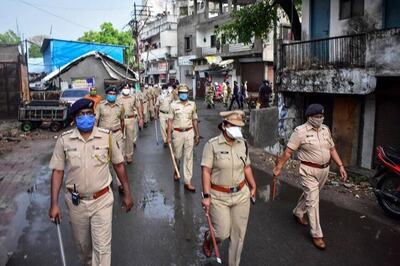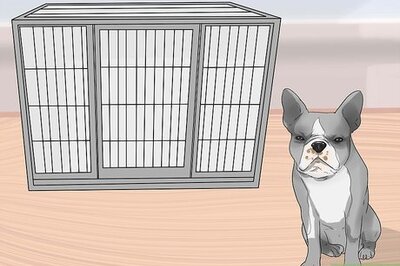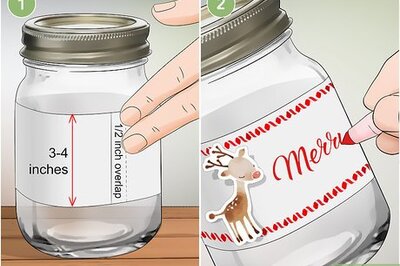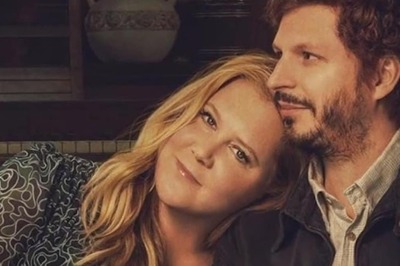
views
NEW YORK: Lawyers representing former president Donald Trump’s company say they believe the Manhattan district attorney plans to ask a state grand jury to indict the Trump Organization in an investigation that involves fringe benefits paid to employees.
They don’t expect Trump himself to face charges at this stage.
Charging a corporate entity, rather than its top executives, isn’t unprecedented. State and federal prosecutors have a long history of filing criminal charges against corporations for mostly the same reasons prosecutions are brought against individuals.
Criminal charges can result in fines and penalties sometimes in the billions of dollars and changes to the way a company operates. And in some instances, they can result in the destruction of the business.
They can also be used to encourage cooperation by the company against individuals who have broken the law or to send a message to an industry that corporate crimes will not be tolerated.
WHAT CHARGES ARE BEING CONSIDERED?
Grand jury proceedings are secret and the Manhattan district attorney’s office has declined to comment. But Trump Organization lawyer Ron Fischetti told The Associated Press that prosecutors are interested in fringe benefits paid to some company executives, like free use of cars or apartments and help with school tuition payments.
It isn’t unusual, or illegal, for companies to give such perks to valued executives, but in some instances those benefits can count as income for tax purposes.
If an employee didn’t pay income tax on those benefits and the company was aware of it, and took steps to help the person evade taxes, that could be illegal.
The former Republican president says hes done nothing wrong and is being unfairly targeted by Democrats out to undermine him politically.
The Trump Organization is a sprawling corporate entity with executives who oversee hundreds of companies and partnerships controlling real estate, licensing and hospitality enterprises worldwide. These range from golf clubs to the luxury Trump Hotel Washington.
WHY CHARGE A COMPANY, RATHER THAN THE PEOPLE WHO RUN IT?
Often, pursuing individuals is the priority for prosecutors seeking to shut down illegal activity within a business.
Sometimes, however, prosecuting a company can hasten change within an industry and force the kind of cooperation that can help prosecutors pursue specific people.
Prosecutors might also find that other companies and businesses, their employees and the public at large are harmed by the illegal actions of one entity.
WHY AREN’T CORPORATIONS PROSECUTED MORE FREQUENTLY?
Prosecutors sometimes hesitate to do so because it could harm innocent employees as well as other businesses.
For instance, merely announcing charges against a corporation could prompt it to shut down and cause people to lose jobs.
HOW DO PROSECUTORS DECIDE WHETHER TO CHARGE A CORPORATION?
One of the biggest reasons to charge a corporation is a finding that illegal behavior is widespread and so pervasive that it would be hard to cure, short of criminal charges.
Also a consideration: how long have people been behaving badly and what has the corporation done to stop it.
Often, companies decide to cooperate to avoid being prosecuted, helping to identify and oust those who have committed crimes and proposing ways to prevent future criminal behavior.
Prosecutors would likely bring charges if a company decided not to cooperate and resisted making changes.
ARE COMPANIES PROSECUTED OFTEN?
Not as much as people. But being prosecuted can be costly, if not devastating, to a business.
In 2013, BP pleaded guilty to manslaughter, agreeing to pay a record $4 billion in criminal fines and penalties related to a deadly 2010 explosion on the Deepwater Horizon drilling rig. The blast killed 11 workers and dumped 134 million gallons of oil into the Gulf of Mexico. The spill, in turn, fouled beaches, killed hundreds of thousands of marine animals and spoiled tourism-based economies from Louisiana to Florida.
In 2016, a federal judge approved a settlement of civil charges that cost the company over $20 billion. The Justice Department called it the largest environmental settlement in U.S. history and the largest-ever civil settlement with a single entity.
The BP prosecution occurred after corporate prosecutions seemed to steadily decline after 85,000 workers lost their jobs when the Chicago-based accounting firm Arthur Andersen was convicted criminally in 2002. Eventually, the U.S. Supreme Court overturned Arthur Andersens conviction.
In a 2014 speech, then-Manhattan U.S. Attorney Preet Bharara cited outcomes in corporate prosecutions including a jury verdict against Bank of America for reckless mortgage lending practices, deferred criminal charges against JPMorgan Chase & Co. in connection with Bernard Madoffs massive fraud, deferred charges against Toyota Motor Corp. in connection with how it dealt with a rapid acceleration problem in some vehicles and a guilty plea by SAC Capital in a case of unprecedented insider trading.
We view with more and more skepticism and with more and more doubt all the breathless claims of catastrophic consequences made by companies both large and small, Bharara said. Effective deterrence sometimes requires that institutions be punished, because sometimes it is the institution that has failed.
Disclaimer: This post has been auto-published from an agency feed without any modifications to the text and has not been reviewed by an editor
Read all the Latest News, Breaking News and Coronavirus News here.




















Comments
0 comment